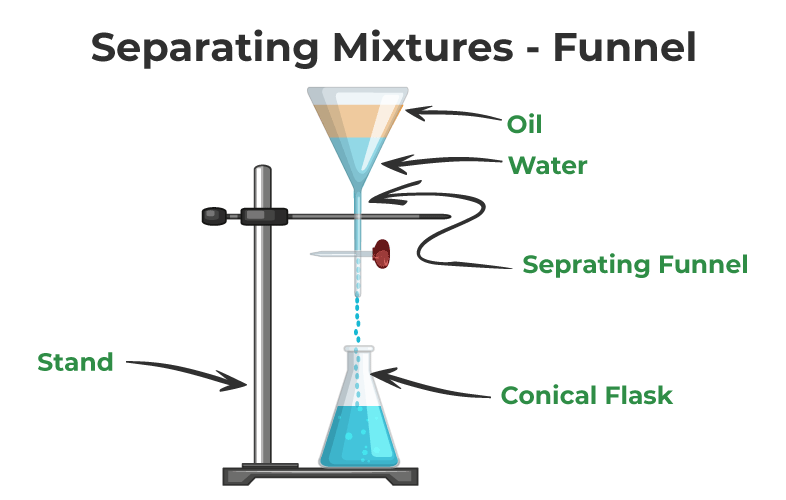SCIENCE Q1 W7-8 REVIEWER: SEPARATING MIXTURES
SEPARATING MIXTURES
QUARTER 1 WEEK 7-8
MOST ESSENTIAL LEARNING COMPETENCY:
Describe technique in separating mixtures such as DECANTATION and USING OF MAGNET.
EASY:
1. Which of the following mixtures can be separated using decantation method?
a. sugar and milk
b. water in oil
c. mixed nuts
d. vegetable salad with dressing
2. Your mother asked you to cook dried fish for lunch and you accidentally mixed the oil with water. What method will you use to separate the mixture?
a. decantation method
b. magnetism
c. evaporation
d. filtering
3. How will you separate mixture of metal and nonmetal objects?
a. by decantation
b. by winnowing
c. by using a magnet
d. by evaporation
4. Metal and non-metal objects can be separated by using a .
a. filter
b. magnet
c. sieve
d. water
5. How will you separate paper clips and thumbtacks from flour?
a. by using a magnet
b. by using a sieve
c. by using a filter paper
d. by using a funnel
AVERAGE:
1. In the process of decantation, the mixtures are left ________?
a. behind
b. undisturbed
c. removed
d. none of the above
2. How can decantation method be useful to everyday life?
a. it help us to become more productive
b. it gives us satisfaction to our everyday living
c. it just an ordinary technique
d. it helps us to make our everyday living more efficient and easier
3. Iron fillings in sawdust can be separated by means of .
a. decantation
b. magnetic separation
c. filtration
d. sifting
4. Which of the following objects can be separated by using a magnet?
a. chalk powder
b. paper
c. rubber
d. coins
5. There is no __________ components in magnetism.
a. physical reaction
b. mechanical reaction
c. chemical reaction
d. acid reaction
DIFFICULT:
1. What will happen to the less-dense substance of mixtures if you separate them by using
decantation method?
a. it will evaporate
b. it will float up
c. remain the same
d. it will become solid
2. What method of separating mixtures is being illustrated below?
a. magnetic separation
b. distillation
c. filtration
d. decantation
3. Which of the following mixtures can’t be separated through decantation?
a. oil in water
b. Gasoline in water
c. Sinigang with floating fats
d. Mud and sand
4. Metals which are made up of_______ are easily attracted to the magnet.
a. alloy, nickel or cobalt
b. paint, water or powder
c. salt, rubber or plastic
d. gold, ruby, diamond
5. The following mixture of materials can be separated by a magnet, EXCEPT:
a. flour and paper clips
b. water and flour
c. pins in sand
d. talc powder and needle
CLINCHER:
6. This method is a technique used in separating a less-dense substance from a denser one.
a. evaporation
b. decantation
c. picking
d. all of the above
7. How will you separate mixture of metal and nonmetal objects?
a. by decantation
b. by winnowing
c. by using a magnet
d. by filtration
8. Mrs. Manalang’s needle was mixed with bits of paper. How will she separate the needle safely from the bits of paper?
a. by decantation
b. by winnowing
c. by using a magnet
d. by evaporation
9. Which of the following best describes a magnet when used to separate mixtures?
a. It can separate metals from nonmetals.
b. It can separate nonmetals objects.
c. It can separate larger particles.
d. It can separate smaller particles.
10. How will you separate mixture of staple wire and chalk powder?
a. by decantation
b. by winnowing
c. by using a magnet
d. by evaporation



Comments
Post a Comment